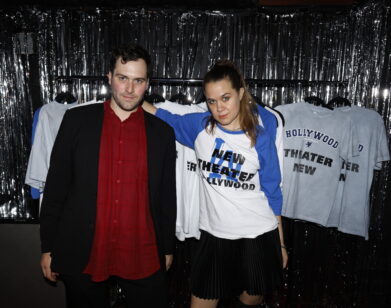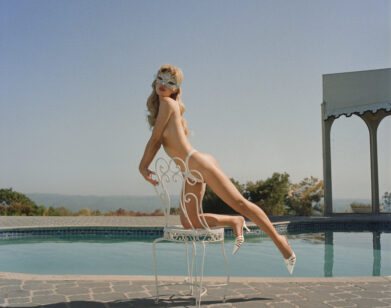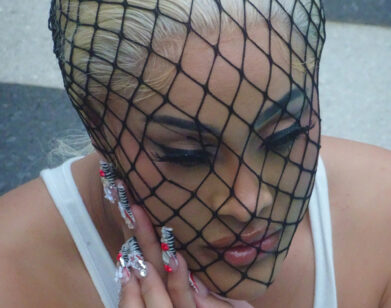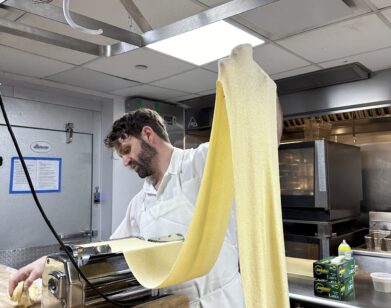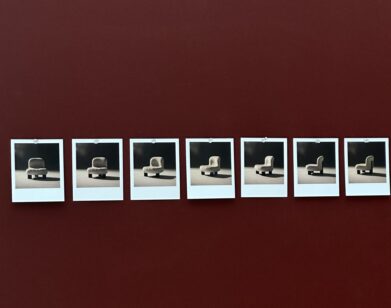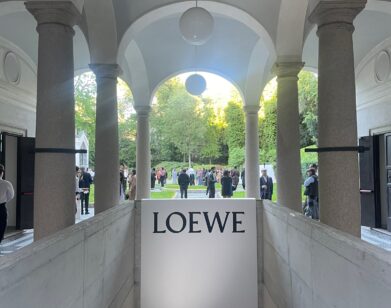Alone Together: Elizabeth Crane Plumbs Disconnection
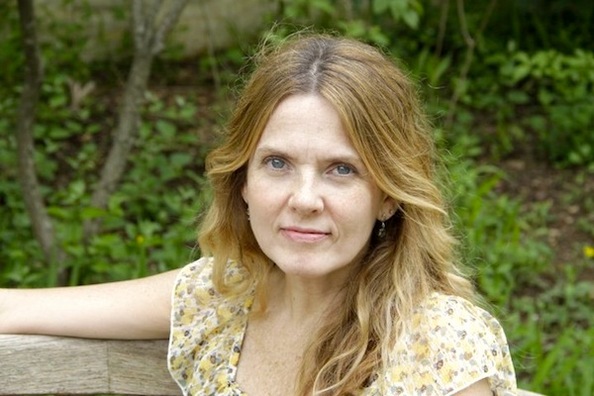
Family shapes us, and not always for the better. Yet we are irrevocably tied to our families—even more so when we try desperately to escape them. In Elizabeth Crane’s wickedly funny novel We Only Know So Much (Harper Perennial), Crane zeroes in on one particularly dysfunctional and disconnected modern family. Mom Jean takes a lover to distract from her drab life, but is left even more devastated when he kills himself. She then shares inappropriate details of their affair with her nine-year-old son Otis, who is obsessed with jelly beans and his number-one crush, a girl who doesn’t know he exists. Dad Gordon is driven to distraction by facts, his failing powers of memory, and his own verbose ramblings, which their daughter Priscilla hates. She totally is going to be famous just for being herself.
The family lives in the house of Gordon’s dad Theodore, who suffers from Parkinson’s, and his mother Vivian, who at 98 is still girlishly charming and spikily judgmental. Crane expertly draws a family portrait in which all the faces are turned away from each other, capturing perfectly how we can live in close proximity and still be completely absorbed in our own secret worlds, yearning for the past or too eager for the future, but never giving ourselves to the present. Whether these characters want love, kindness, memory, connection or fame for fame’s sake, Crane makes them human—and even if they are not connecting with each other, we connect with them. We spoke with Crane about chasing celebrity, her imaginary role on reality TV, suicide, and family: the ties that bind and the ones we forever chafe against.
ROYAL YOUNG: There’s this youthful feeling that fame is the answer to everything. But not like, I’m an artist and I’m great at it, so I’m going to work really hard at it and I would like to be successful too. More like, I should be famous for being myself.
ELIZABETH CRANE: Yeah, that seems to be a more-common-than-ever thing right now. The celebrity culture we’ve been living in has been going on for quite a while now. I have this sense that a lot of people who want to be famous are not thinking about everything else that goes along with that. You want recognition, approval, you see the attention these people are getting. It seems like a positive thing. I get it. I totally get it. But at the same time, I also recognize that anonymity can also be a really good thing. It’s very underrated. Social media has really exacerbated the problem. Facebook, Twitter and YouTube make fame come very quickly for very little. There’s this new inability to live your life any other way but publicly.
YOUNG: I think we want everything to come very fast. There’s no real notion of the impacts.
CRANE: That’s exactly right. If reality TV had come around when I was in my 20s, I cannot say that I wouldn’t have been all over it. I just thank god that it wasn’t. I wouldn’t have been one of those girls flipping up their shirts, drunk in Miami, but I would have been on The Real World if I thought I could. At that point, I was like any other young person, thinking that any kind of recognition would be useful to me in some way. Though I had no idea in what way.
YOUNG: I also wanted to talk with you about suicide. I went to a gallery show yesterday of a friend who was a photographer who had killed herself. I knew her years ago, but a photo of me was in the show. When I was reading about the suicide in your book, it took me back to that place.
CRANE: Oh, my gosh.
YOUNG: I was thinking if my old friend hadn’t killed herself, she would probably be just another person whose Facebook status updates I saw whom I used to kind of know. But because she did, she almost has more of a pull or power.
CRANE: Wow, of course. If I were in that position, I’m sure I would go myself. I don’t really have too much personal experience with this, but it’s something I think about a lot. I think about if that were a situation I were in, it leaves so much unresolved for the people who are left behind. So many what-ifs and questions, things you try to understand. But I think there’s nothing to really understand, except that that person had a mental condition that made them decide this was the best solution. Even if you understand that, as the person left behind, there’s still the tendency to think you should have done something differently, you should have known, you should have tried to get them help. Like if you go to the show and see the photo of yourself, something will be illuminated. If you are super close to someone, it must be tremendously hard to move forward. In the case of Jean, she doesn’t have anyone to go to.
YOUNG: It just struck me that a similarity between celebrity-seeking and some suicides is that they are really cries to be seen.
CRANE: Yes, when the daughter, Priscilla, starts to talk about suicide, she is not suicidal, but she’s evolved a sort of Harold & Maude type scenario in her head. She thinks about it only because she wants that kind of attention. Again, this plays with the idea that any attention is good attention and once you get it, you’ll figure out what to do with it.
YOUNG: What happens when we walk around feeling unseen or disconnected from the people around us?
CRANE: I know when I was in my 20s, I felt that way. It’s weird. Someone sent me a message saying “Your name came up at dinner the other day,” and I thought, really? I still have this impulse to think if I’m not present, nobody talks about me, good or bad. I sometimes don’t think I register, even though I am a public person now. You hit on it when you talked about loneliness. It’s tremendously lonely. There is this idea that celebrity will fix or fill this somehow. I learned this from my mom, who was an opera singer. She was very ambitious and very talented, she had a career. But she was probably in her 40s when she finally realized that all the successes and praise she got didn’t fix anything.
YOUNG: How can we be completely and utterly tied to family but also distanced from them?
CRANE: My father had moved into his parents’ house after he retired. He cared for them until they lived to be 100 and 104. I made the characters in the book younger, because my editor thought no one would believe this 104-year-old woman bopping around the house. My grandmother was very charming, but she was difficult. I witnessed some of that firsthand. I’m not sure if there’s a family in the world that’s a perfect model for how a family should be and how they can connect to each other. This book is an extreme example of how disconnected they can be. Their communication is nonexistent, yet they are tied to each other.
WE ONLY KNOW SO MUCH IS OUT NOW.

